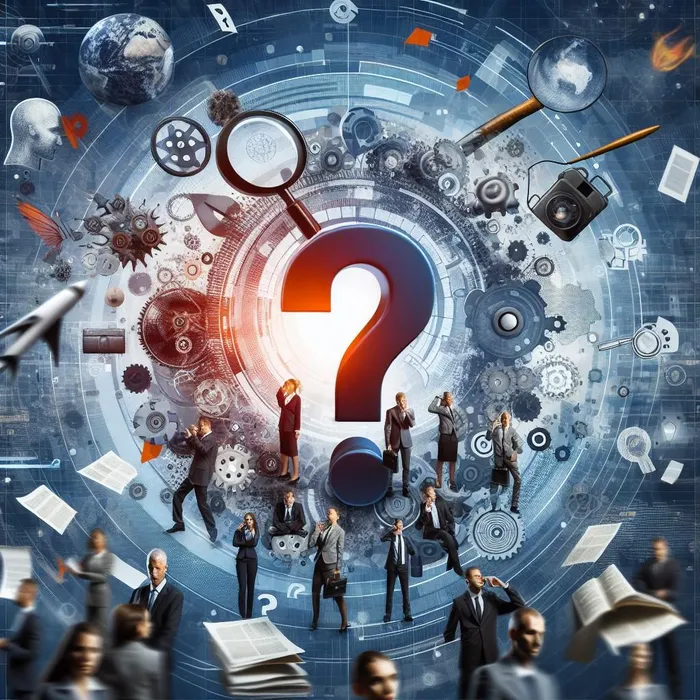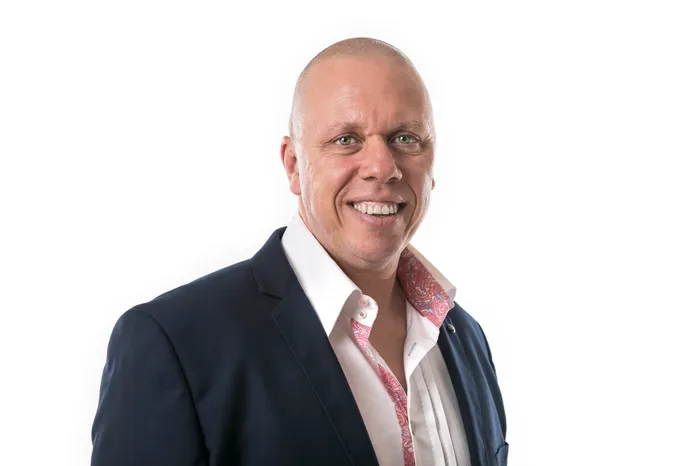Is R700 million for a national dialogue worth it? - Donald MacKay
TRADE WINDS

Before the government spends R700 million on a(nother) national dialogue, it is reasonable to ask what the dialogue promises to deliver, is this worth more than R700 million and what are the chances the stated objectives will be achieved, ask the author.
Image: AI LAB
Before the government spends R700 million on a(nother) national dialogue, it is reasonable to ask what the dialogue promises to deliver, is this worth more than R700 million and what are the chances the stated objectives will be achieved. Dr Oyama Mabandla, a member of the national dialogue preparatory task team, asks us to give the national dialogue a chance, reminding us that “[t]he national dialogue is an attempt to reinvigorate and fix a dangerously adrift democracy. It will involve the entire populace, instead of the self-selecting and incestuous elites, who have been producing one after another failed plan, while the rest of us have been spectators.”
But of course it won't involve the entire populace and the outcome will be a big report that no one reads. How can it be anything other than this? Even if you could speak to everyone. What then? Which ideas do you implement and which do you ignore? No member of the task team can do anything other than talk and although conversations matter, you need executive power to change things and you get executive power through lots of votes.
The reason we have elections is that you can't involve the whole populace of 63 million people in any dialogue, no matter how important. So we compromise and although they are very far from perfect, elections are the only way we have to get a sense of what citizens want.
South Africans didn't decide to give the ANC 40% of the vote in the last election to teach anyone a lesson, as experts love to tell us. A gogo voted for the DA because she believed they would give her grandchildren the best future and a young, first-time voter put their X next to Juju's face because they believe the EFF will give them the best opportunities, but most didn't even do that. Voting is the only opportunity you have to not get the government all the other idiots deserve. It is only in those few minutes in a cubicle where you can actually get something changed.
The national dialogue is not even that. You can say as much as you want in conversations and you will be ignored. This is not personal. It is the very heart of how democracy works. No one vote counts for anything unless millions of others agree with you and then that vote really counts. I have no idea why President Cyril Ramaphosa feels like a(nother) national dialogue will yield anything positive (aside from the events’ organisers who will no doubt be skimming their 25%) or why borrowing R700m to fund this will yield more in value than the R700m, plus interest, that will be spent. (We currently borrow around R1 billion per day, so the national dialogue is an extra 17 hours or so of borrowing, which somehow doesn't feel that bad. But it is).
It's all about social compacting, we are told. But what is this magical phrase loved by many and understood by few? Does Ramaphosa love social compacting more than Trump loves tariffs? Will the national dialogue make more people less poor or will everyone just be R700mn poorer?
Social compacting would pop up in masterplans in the Department of Trade Industry and Competition for example, and mostly seemed to mean that a small number of dominant companies could meet with the government, without minutes or recordings, to determine how the rest of the industry should work. It failed even with the full power of government and the largest companies in the country behind it. South Africans, when you ignore the loudest and emptiest vessels, talk with each other just fine (even if that is mostly to complain about the government). The problem is that South Africans are getting poorer and most citizens don't believe the government, irrespective of which party is in charge, can fix that. That is why so many people don't bother voting.
The most important first step to economic transformation is to make it easier for more people not to be poor. The three great social ills in South Africa of poverty, unemployment and inequality, leaves out the fourth great ill which is lack of economic freedom. The EFF hijacked this term for their version of communism, but economic freedom allows people to solve their own problems.
Not another pile of the Master's Plans, pushed down onto South Africans, but allowing them more freedom to do what they believe is important for them. But the government doesn't trust its own citizens, so you can be "given" a free (shitty) house after waiting decades but you can't sell it, because the government doesn't believe you can be trusted with your own money. You wait for decades because with free stuff, the demand always outstrips the supply and no one has an incentive to increase the supply. We know poor people will pay for houses if they can own them, because poor people currently pay for houses they cannot own. Rich people have economic freedom and poor people are not allowed to make their own economic decisions and so remain poor.
We have the only national dialogue that matters, which are the conversations which happen in parliament. Have your say and vote and you are part of the dialogue. Spending R700m so you can be told by a(nother) group of people how they can lift you from poverty, as long as you do as you are told, is a terrible idea.

Donald MacKay is founder and chief executive of XA Global Trade Advisors.
Image: Supplied
Donald MacKay is founder and chief executive of XA Global Trade Advisors. MacKay has been advising local and foreign companies on global trade issues for more than two decades. X handle: XA_advisors; email: donald@ xagta.com; website: xagta.com.
***The views in this column are independent of IOL and Independent Media.
BUSINESS REPORT